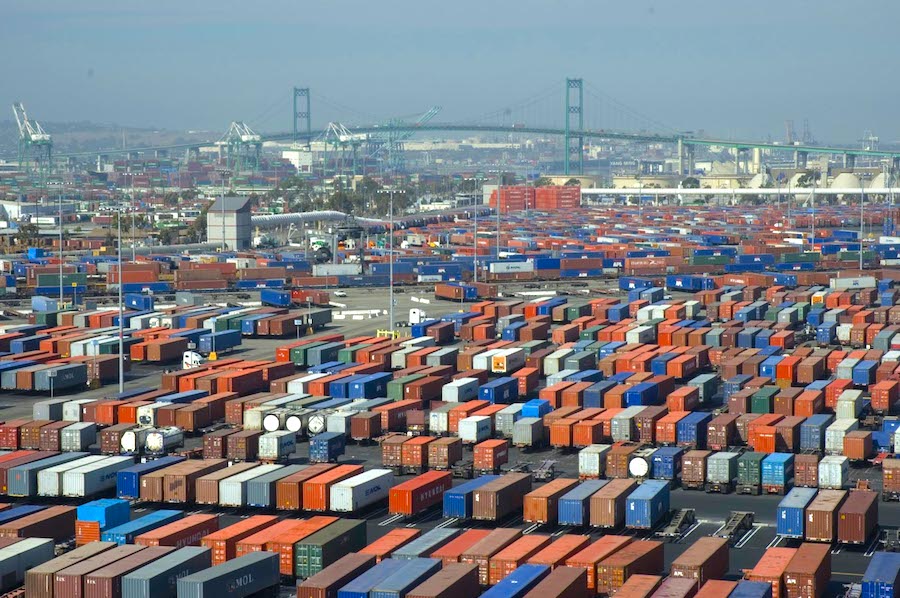Blaming the ongoing U.S.-China trade wars and reiterating a message from last month, the Port of Los Angeles Thursday reported it is starting to see a decrease in shipping activity.
The Port reported that it moved 779,903 20-foot equivalent units in September, a 2.7% decrease from 2018’s record-breaking month. Total inventory has increased 4.7% compared to last year, which was the Port’s busiest year ever.
“The ill-advised U.S.-China trade war continues to wreak havoc on American exporters and manufacturers,” Port of Los Angeles Executive Director Gene Seroka said. “We’ve seen declining exports for 11 consecutive months while our fastest-growing market segment is exporting empty containers back to Asia. It’s likely we’ll see softer volumes in the fourth quarter. We must have a negotiated settlement of the trade war as it is beginning to impact the more than 3 million jobs in the U.S. that are tied to this port complex.”
The port reported that imports decreased 2.9% to 402,320 TEUs compared to the previous September. Exports decreased 11% to 130,769 TEUs, the 11th- consecutive monthly decline of exports. Empty containers increased 2.9% to 246,814 TEUs.
The Port of Los Angeles reported it facilitated $297 billion in trade during 2018, and the San Pedro Bay port complex operations and commerce facilitate one in nine jobs in the five-county Southern California region.
China has accounted for the largest portion of the Port’s business, Seroka said in a letter to multiple Los Angeles governing bodies last month, with $202.6 billion in trade coming through in 2018.
“Based on the large share of Chinese trade handled in the San Pedro Bay, the amount of cargo exposed to … tariffs and associated retaliatory tariffs is more pronounced than other trade gateways,” Seroka said. “On the import side, our most recent analysis estimates the current and proposed tariffs directed at China will impact roughly 66% of all imports by value and 64% by both tonnage and container volume.”
The Port of Long Beach had not yet released its September shipping figures, but the port has reported steady declines in shipping activity over the last several months. Long Beach reported an overall 10% drop in cargo volume for July.
Port of Long Beach Executive Director Mario Cordero said at the time that the trade war is hitting the West Coast hard. Exports alone have dropped 50% since last year, he said.
Top officials from the United States and China were expected to meet this week in Washington, D.C., to try and hammer out at least a limited deal that may stave off more tariffs expected next week. The Trump Administration has already levied tariffs on some $360 million in Chinese goods.

